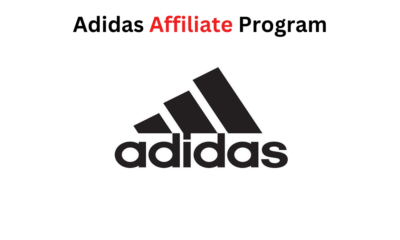Affiliate marketing is a field where a lot of things can change over time, such as tools, technology, sectors, and trends. While AI and other technical advances are being made, there is one thing that will always be the same: how business is done on the Internet.
In the digital market, which is always changing and not personal, everything is based on two important principles that can’t be erased: ethics and honesty. No friendship can work or last for a long time without these two main ideas.
Regardless of your sector or business size, ethical and transparent methods are crucial for maintaining personal and professional integrity and building confidence and credibility with affiliates and advertisers.
This article discusses how ethics and transparency affect business interactions and how you can increase results while doing things right and with integrity.
Essential Ethics and Transparency
Let’s talk about why ethics and honesty are so important in affiliate marketing before we get into the specific things that can be done to support them.
People are becoming more aware of and demanding the honesty and authenticity of the brands and goods they buy in a market that is full of information and choices. So, any marketing plan that isn’t built on honesty and ethics could hurt the public’s trust in the brand and hurt its credibility over time.
But what does each of these ideas mean when it comes to affiliate marketing?

Ethics means being honest, having ethics, and taking responsibility for your actions. It means being honest about your partner relationships, protecting your users’ privacy and rights, and being clear about the links you use. By following a moral code, you not only follow the law, but you also gain a strong following of loyal supporters.
To get users to believe you, you need to be open and honest. It’s important to be honest about your affiliate links and how you work with marketers. Users like it when they don’t think anything is being kept from them, and if they believe your content, they are more likely to do what you say.
Ethical and Transparent Practices in Affiliate Marketing
1. Careful Selection of Products and Brands:
Ethical affiliates spend time investigating and closely assessing the companies and products they decide to highlight. This entails giving thought to things such consumer satisfaction, brand reputation, customer service, and product quality. Affordables show credibility and trust by only working with items and brands they really believe in, therefore improving their relationship with their audience.
2. Transparency in Compensation and Commissions:
In affiliate marketing, it’s very important to build trust and trustworthiness. Affiliates should be open about how they get paid for promoting goods or services, including any commissions, bonuses, or other forms of payment. Also, make it clear what the partner program’s rules are and if there are any changes to how payments are made. Stay in touch with your audience by answering their questions and opinions in an open and honest way.
3. Clear Disclosure of Affiliate Relationship:
It is important for affiliate marketers to be honest about their relationship with advertisers. This is one of the primary concepts of ethical affiliate marketing. Affiliates should openly say that they are endorsing goods or services in exchange for money when someone buys something or takes action after clicking on one of their partner links. This information needs to be easily visible and understandable in advertising, such as on labels, in comments, or in clear notices.
4. Honest and Authentic Promotion:
It is important for affiliates to be honest about the products or services they suggest and not lie or exaggerate about their benefits or features. Instead of just trying to make sales at any cost, promotional material should really show what the affiliate thinks and has experienced.

5. Protection of Privacy and Data:
In the digital age, this is an ever more pressing issue. Complying with relevant privacy laws and regulations, ethical affiliates are dedicated to safeguarding the audience’s private and personal, so implementing responsible and open data collecting, storage, and use policies.
6. Avoid Deception or Fraud:
These actions are not only unethical, but they can also get you in trouble with the law and hurt the image of your business. In affiliate marketing, one of the most common tricks used to trick people is to promote goods or services without making it clear that it is an affiliate promotion. You should let them know that you are a partner marketing a product or service and that if they buy something through your link, you will get paid.
7. Continuous Updating:
Affiliates should know about any changes that happen with advertisers’ policies and procedures, goods, or services. This lets them give their audience ideas that are correct and up to date.
Conclusions
In affiliate marketing, ethics and honesty are not just buzzwords; they are basic principles that keep your efforts honest and successful. If you follow these tips, not only will your image and relationships with customers get better, but your results will also get better, which can lead to more engagement, loyalty, and long-term success.
Integrity in both your personal and business life should always be at the heart of any marketing plan. Do you want to stand out in the world of affiliate marketing by being honest and doing things the right way?

 Affiliate Marketing Glossary2 months ago
Affiliate Marketing Glossary2 months ago
 Affiliate Programs5 years ago
Affiliate Programs5 years ago
 Affiliate Programs5 years ago
Affiliate Programs5 years ago
 Affiliate Programs5 years ago
Affiliate Programs5 years ago
 Affiliate Programs5 years ago
Affiliate Programs5 years ago
 Affiliate Programs5 years ago
Affiliate Programs5 years ago
 Affiliate Programs5 years ago
Affiliate Programs5 years ago
 Affiliate Programs5 years ago
Affiliate Programs5 years ago





